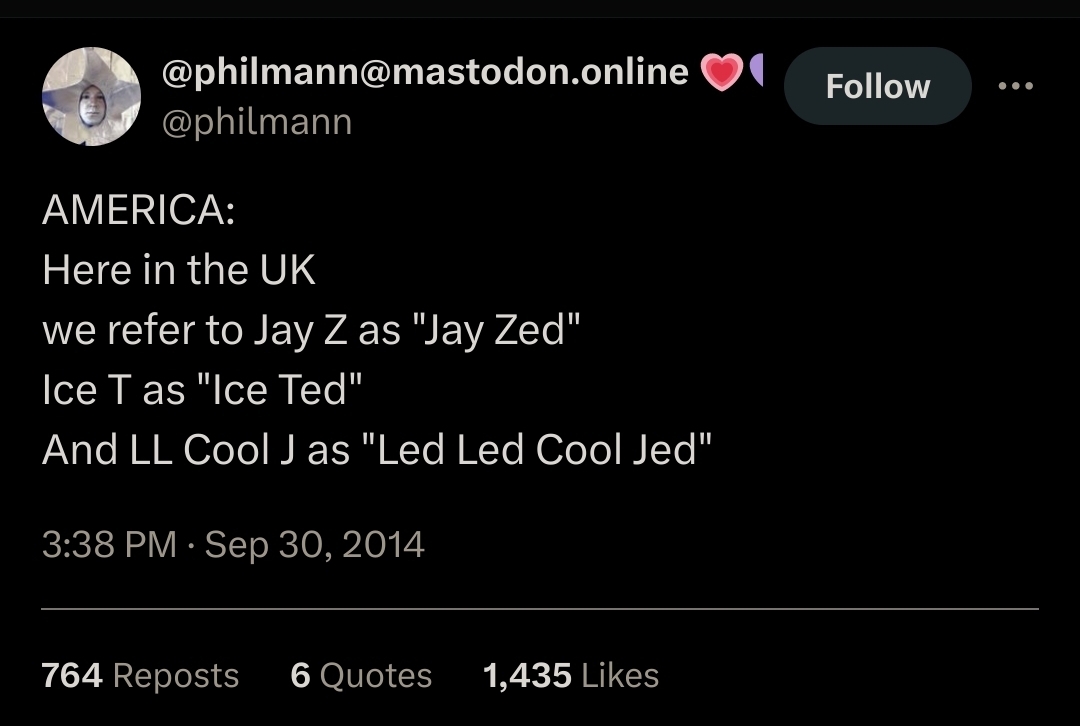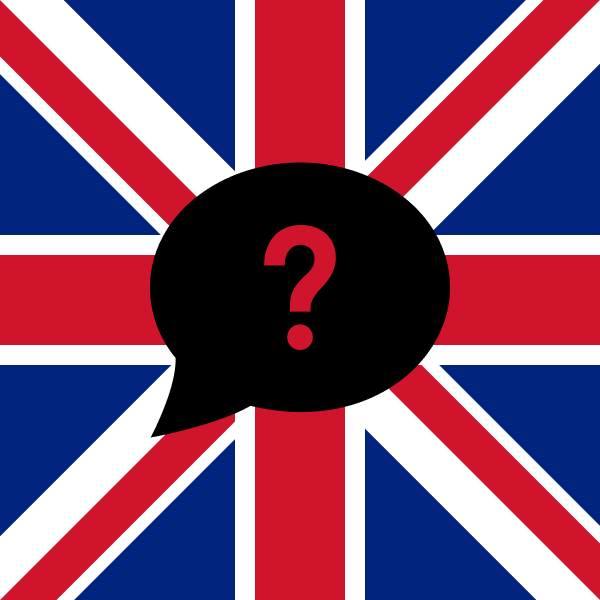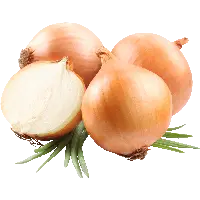For example, switching out the word ‘boot’ for ‘trunk’, or ditching the word ‘rubbish’ for ‘garbage’.
This is something I’ve noticed my 6 year old does pretty regularly. We went through a stage where ‘sweets’ became ‘candy’, ‘holiday’ became ‘vacation’ and ‘courgette’ became ‘zucchini’.
That last one didn’t happen but if you’re still reading you’ve got my respect, or as the Americans might say ‘…mad props’.
I like “garbage” when insulting something, it just has a nice guttural sound.
Yes, but British English has superior insults like cockwomble.
“cockwomble” just sounds like you’re trying too hard, like a yank LARPing as a brit they read about on the internet
That’s when you pull out the British understatement and switch to ordinary nouns in a context that implies an insult (“you utter teakettle”)
Teakettle? Isn’t that just a kettle?
It’s a way to call someone extra or superfluous.
Really? Is it regional maybe? Irl I’ve only ever heard it from English people who want to say something stronger than “bell end”.
I don’t think I’ve ever heard anyone say it IRL. It’s a pretty minor thing really, use whatever insults you fancy, but if you want something very British you’ve got classics like muppet, nonce, pillock, bawbag.
I’m partial to ‘wankspanner’. Which is pretty un-American since even if they knew what to wank meant, they’d probably to with ‘wankwrench’ which just isn’t the same. Sorry, I’m moving into rambling territory now.
I myself use the insults of my own culture (NZ), but I just like hearing the British people in my life using theirs.
I know an elderly British woman whose worst insult seems to be to call someone a “rotter”.
Honestly, bellend is a wonderful insult in my opinion. I used to watch a lot of sovietwomble and similar youtubers in the past so that and using cunt like a more colorful version of calling someone a dick were something i heard a lot and have a lot more behind them when said. That being said, I live in the US and would have to explain Bellend which would cause it to lose the impact. And cunt is far more negatively received here so you will likely be regarded as a mysoginist and/or get clocked here.
As an American in awe of your insults, I can’t get enough of the English pronunciation of twat. It cracks like a whip. Truly spectacular stuff.
Lol, I’m American as well. But I agree with you 100%. It really feels like most of our insults here are lacking compared to the rest of the world.
Garbage and trash are excellent American words. Much better than “rubbish”
I’m hellbent on being a relic. Currently railing against the proliferation of “store”. SHOP ffs. I look forward to everyone going storing.
“Shop” seems to mean buy. “Shop affordable easter instore” = “buy cheap chocolate in our shop”.
Do your shopping at the shops.
Do your storing at the store, your shopping at the shops, your storing at the shop, and your shopping at the store!
It all works!
I said “gen zed” the other day and everybody frowned and said “Don’t you mean gen zee?”. NO I FUCKING DON’T. Still fighting the good fight in pronouncing schedule with a soft sh but I think I’m in a small minority these days. I’ve given up trying to call it an aubergine emoji, we may as well accept it’s an eggplant now 🍆
English is my second language and I despise zee, it gets confused with cee. Zed is objectively superior
You know, I don’t think I’ve ever heard an American say “Gen Z” before, and it literally never occured to me that they were pronouncing it “Gen Zee”. Obvious now you mention it, but I’ve just been assuming that every time I see it written down it’s “Gen Zed” by default.
My friends were the opposite, they accepted that Z is pronounced Zed, but they said that gen zee was different, because “it’s like ZZ Top”. I argued back that it’s not like ZZ Top, it’s just a letter assigned to a generation. They were so used to hearing it said by Americans on TikTok, they refused to even accept that a normal person would say gen zed. “It’s just gen zee though! Nobody says gen zed!”. I’m angry again thinking about it!
Lol zed zed top

I used to call him this.
Boy did I get the puss taken out of me
I have never heard that said out loud so to me it’s zed zed top.
Lay-zed-boy make beds and apparently Dragonball Zed is wrong too?
I’d argue it’s a proper noun which happens to be a letter long rather than a letter assigned to a generation
That said I believe the correct term is Zoomer which resolves this issue
Schedule, yes! We’re very much in the minority on that one, but I’ll keep on using it the right way, even if it doesn’t seem to make sense when looking at other words like school.
Expat in the US. I met a guy called “Z” the other day - I didn’t want to be a cunt and pronounce his name wrong, so I went along with it.
I do pronounce Aaron correctly and not call them “Erin” though.
Yeah it really isn’t hard to double up on the a sound.
Aaron
It’s never occurred to me it could be pronounced “gen zee”.
I make an effort to speak British English, and not let any American into my vocabulary. Not really sure what the point is, but I’m sure I had a reason at some point.
However, I do like saying “hood” instead of “bonnet”, mainly because it’s easier to say “under the hood” than “under the bonnet” when talking tech.
Do you use hood for actual cars or is it strictly when you are talking about non-car things?
Just for non-car stuff. I *would * use hood for everything, but the people I would talk to about cars would get pissy for using the wrong car words.
Fair enough, I was curious as I quite like these things where the figurative language gets orphaned from its literal meaning. Giving future etymologists something to enjoy.
I’m American but would really appreciate it if aubergine caught on here across the pond. I know it’s French (and from prior languages) but I commend the UK for sticking with it. In contrast, eggplant sounds so crude and unappetizing. If you’ve Americanized this one, please stop.
Also, we should all bring back a few Old English terms.
What I hate about “eggplant” is that none of the varieties that anybody actually eats look even remotely like an egg. It’s a massive purple banana-shape. They also don’t taste like eggs, smell like eggs, or get used like eggs.
It’d be like calling cucumbers “cheesefruit” or something. It’s just destined to baffle.
It looks like eggs in an early stage of development, but aubergine is a way better word nonetheless
Call it what you like, it’s an F tier veggie
No way man, it’s a great vehicle for flavor. Soak the slices in a basil balsamic garlic marinade a for an hour then roast them in the oven, simple and delicious.
To each their own garbage
Rubbish*
Become Canadian. We have poutine.
Any nation who makes cheesy chips and gravy their national dish is a friend and ally in my book
I’m already half way there being a big NHL fan.
I use often use “movies” and “TV shows” instead of “films” and “telly series” and I am mildily disappointed with myself.
I feel I should use the Old English Fall instead of the French Autumn but it seems a step too far. Perhaps I could use Harvest.
I seem to use movie when describing the blockbuster/B-movie end of the scale, and film when talking about a quality bit of cinema. But I also am more likely to call a US flick a movie and a Brit one a film.
I like the sound of the word autumn, and particularly autumnal. I can see those reds and browns and feel the crisp air. Fall does give more opportunity for puns and easier rhymes, I guess.
American here, I tend to spell words the British way because they make more sense, and I’ve done it since I was a teenager, for some reason it pisses off my older brother lol.
Examples:
- Grey
- Defence
- Offence
- Theatre
- Customisation
- Analyse
- Flavour
etc. etc.
Cancelled has 2 Ls and I will die on this hill
I’ve always spelt it with two Ls and just found after your comment that American English doesn’t 🤢
Gray is the superior grey.
Funny… in my head, “grey” refers to a light gray (e.g., dove gray) whereas “gray” is more like when it’s overcast.
I’ve gone the opposite way - I’ve been replacing my American pronunciations with the British ones, like leverage starts with lee, like in lever, and that (software) patent starts with pat not pait.
I think it’s in response to my younger friends and colleagues sounding, to my ears, increasing American - they say gotten, zee, and on accident (things that are often more consistent, but just not
cricketBritish). I’m old enough to remember the sound of dial up, so I probably wasn’t as exposed to US media growing up.I’m old enough to mostly have a British vocabulary. And, although I did live in Yanklandia for a year I seem to have come out relatively unscathed.
My kids (who watch too much Youtube) use a lot of American words and pronunciations. It’s an ongoing struggle to get my daughter to say tom-ah-to.
Tomato, tom-ah-to. Potato, poh-ta-to.
Just wait till she’s having taters
I’m not even sure if I’m honest. NW England, my shits a mix of English, Cumbrian, Yorkshire, Scottish, Madeupish … No doubt some American words in there that have snuck in like a bad smell.
I was gonna say, no self-respecting six-year-old wants to even consider zucchini.
That’s pure bullshit, my three boys all like them. 8, 5 & 2
Teach me!
Grow your own, let them help. Then they are eating “their” zucchinis, it helps a lot.
Eat them small and sweet ~15cm (6in) long. Lightly steamed (add a very small amount of salt)/stir fried (last in once everything else cooked).
Over cooking turns them into terrible tasting mush.
I quite like shop in the sense of workshop, and I also rather like y’all.
I also often refer to whisky as scotch, though I feel like that is as much about making myself understood.
Y’all is great, but I can’t use it without sounding like I’m taking the piss.
Aren’t scotch and whiskey two different things? In a rectangle/square sense
Scotch is whisky from Scotland (shockingly).
That’s not an Americanism really; people call it Scotch in British English too. It’s just that because 99% of the whisky in the UK is Scotch anyway you don’t really need to specify. Whereas because most whisky consumed in the US is bourbon, they tend to specify when they mean Scotch.
The same is presumably true in reverse, i.e. Brits using “bourbon” more than Americans because of the need to specify.
Personally I’m not bothered by the whisky/whiskey distinction. Whisky was traditionally Scottish and whiskey Irish, with the Americans going the Irish way and other countries (like Japan) going the Scottish way. But it’s a bit of a meme to nitpick at this point; they’re indisputably just two spellings of the same thing.
That’s more along the lines of what I was thinking. I could never tell the difference between the taste of any distinctions
Once you’ve got your eye in, scotch and bourbon are quite different. Many (although not all) scotch whiskies have peat in their flavour profile (a kind of smoky, salty, earthy flavour which is very distinctive), while bourbons never do. Bourbon is almost always quite a lot sweeter than scotch.
They’re also made quite differently. Bourbon is mostly corn, and often has lots of rye and wheat in the mix, whereas scotch is mostly made of barley. Bourbon is always aged in new oak barrels, whereas scotch is mostly aged in second-fill barrels (which might previously have been used for bourbon, wine, sherry, port, cider etc.).
Even in my college days I was just never been able to get past the poison taste of ethanol to get to the good stuff that differentiates the flavors
Whisky and whiskey are two different things.
“Scotch” is American for whisky but not for whiskey.
Guess I’m even more ignorant to booze culture than I thought
Biscuits for the win
How do you pronounce courgette?
Is it a hard g like get or a soft g like giraffe?
This is one British word I had no idea existed.
It’s the /ʒ/ sound like the s in measure, vision, or the J in the French Jack. So the word is /koːʒɛ́t/ It’s from the French word courge.
Well the word itself does look french when looking at it so just by that going with the french way of pronouncing it makes a lot of sense.
Removed by mod
Here you go: https://youtu.be/py11JV8mLh4


















